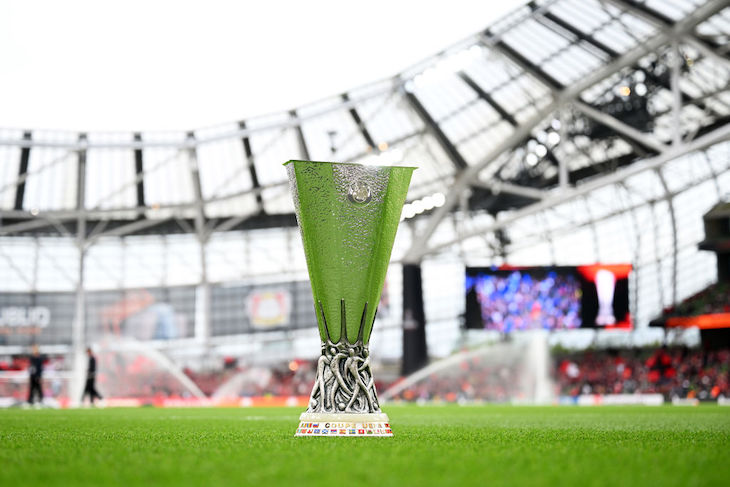‘They tried to stop us and look what it did. The thing I love most is being a yid.’ So chanted the Tottenham Hotspur fans 44 seconds into their side’s 4-0 thrashing of Everton last weekend. That often-repeated song refers to previous, unsuccessful, attempts to try and stop Spurs fans using the ‘Y-word’.
Ask any Spurs fan singing that and similar tunes why they do so, and they will likely say that it started as a response to antisemitism from opposing fans because of Tottenham’s connection to the Jewish community. Chanters would undoubtedly insist that there is no malice or antisemitism involved. This is generally my view too.
It is not like the antisemitism directed at Spurs or Jewish players is a thing of the past, rendering that defence redundant. Israeli footballer Manor Solomon departed north London this week for a season on loan at Leeds. The bile underneath the social media posts announcing the deal was as depressing as it was predictable. I fear there will be more in real life when the winger takes to the pitch for his temporary side.
At Spurs, being called a ‘yiddo’ is a sign of affection. For years, the words ‘Jermain Defoe, he’s a yiddo,’ rang around the ground whenever the former England forward scored. On Saturday, a pacy dribble from Wilson Odobert was greeted with cries of ‘Yiddo’, as fans let the new signing know that they approve of him.
But as the 2024/25 seasons gets into full swing, it is worth asking whether what is, in general usage, a deeply unpleasant word needs to be shouted at football matches. For one thing, lots of Jewish Spurs fans do not share my view and, quite understandably, feel uncomfortable with the continued use of the Y-word.
As a Jewish child first attending games at White Hart Lane around 30 years ago, I remember being distinctly uncomfortable about the Y-word chants, knowing that it was a bad word being shouted. As time has gone on and I have gained a better understanding of the context, I have found humour and comfort in its use.
Yet even now I would not accept it being used in any other context, so why is it OK in a small part of N17? It is not like there is a comparison with some black communities reclaiming the N-word. The reality is that most of those chanting it at Tottenham games are not Jewish.
In 2022, the club itself asked fans to ‘move on’ from using the Y-word following a review in which 94 per cent of the 23,000 respondents to a survey said that its use could be considered racist. Jewish fans of other clubs do not like it either. I’m sure I wouldn’t if I supported that mob from Woolwich the other end of the Seven Sisters Road.
David Baddiel has been imploring Tottenham fans to stop the Yid Army chants for years. He said he was spurred into action after hearing antisemitism whilst supporting his team, Chelsea. I’ll be honest David, that sounds like a Chelsea problem, not a Spurs one.
In September 2013, the comedian and author wrote in the Guardian: ‘The fact is that whatever its origins, their continuing use of the Y-word legitimises and sustains the racist abuse aimed at Spurs by other fans.’ Talk about victim blaming.
One thing is for certain, if you want to stop the use of the Y-word at Tottenham, a lecture from a fan of a hated rival is not the way to make it happen.
The same day as Baddiel’s article was published, the Community Security Trust, who provide security for British Jews and fight antisemitism, commented on the situation in a very sensible manner. They said:
‘Although the way that Spurs fans usually use the Y-word does not justify prosecution, it remains an offensive word that can upset many Jews both inside and outside the football context. Ultimately, ridding football of antisemitism needs to involve Spurs fans voluntarily dropping the Y-word from their songbook.’
But the Tottenham crowd has not ‘voluntarily [dropped] the Y-word from their songbook.’ It was used repeatedly on Saturday and will be by the away fans heading to Newcastle this weekend.
Following the atrocities of October 7, there is an added dimension to the Y-world debate. Lots of Jewish Spurs fans were unhappy with the pathetically generic response to the Hamas attacks put out by the club. The Yid Army chants seemed to have added fervour in the aftermath of such anti-Jewish terror. Somewhat bizarrely, they brought a much-needed sense of solidarity in what remains a dark time.
And so, the chants will continue, and the debate will continue. I’d have no issue with the Y-word organically disappearing from the Tottenham lexicon. I suspect over time it will. But until then, I’ll still be part of the Yid Army.


